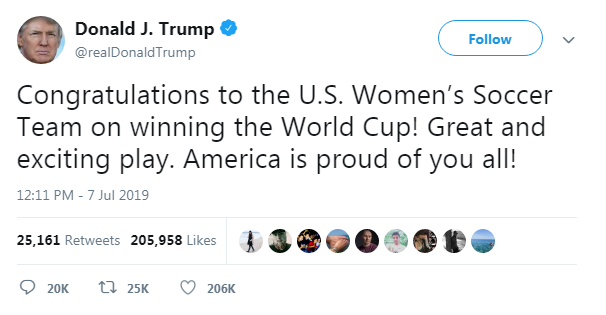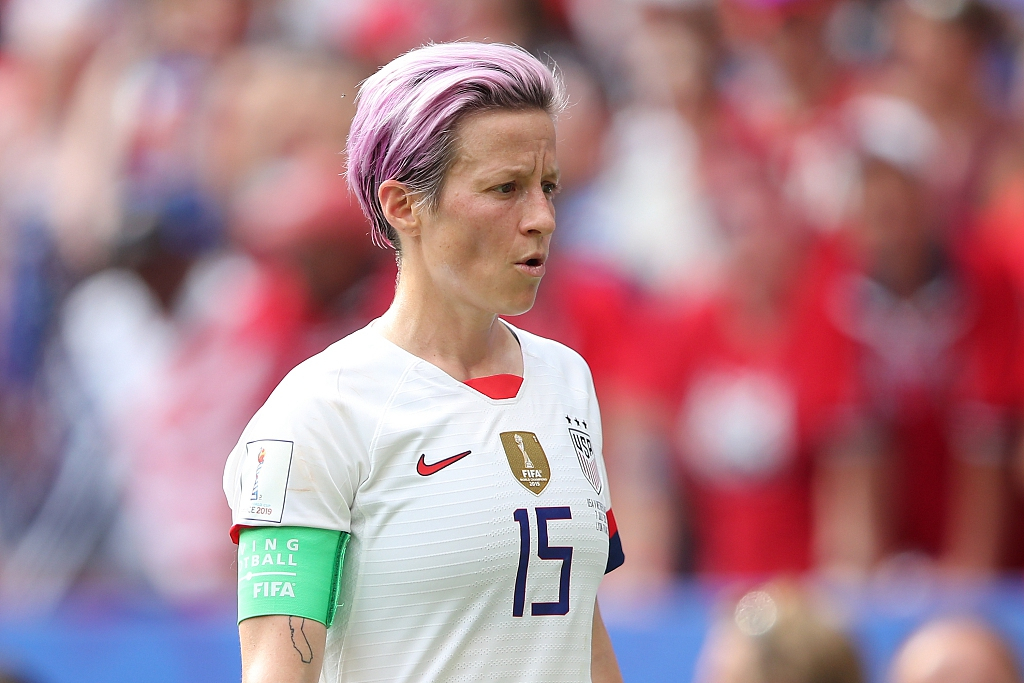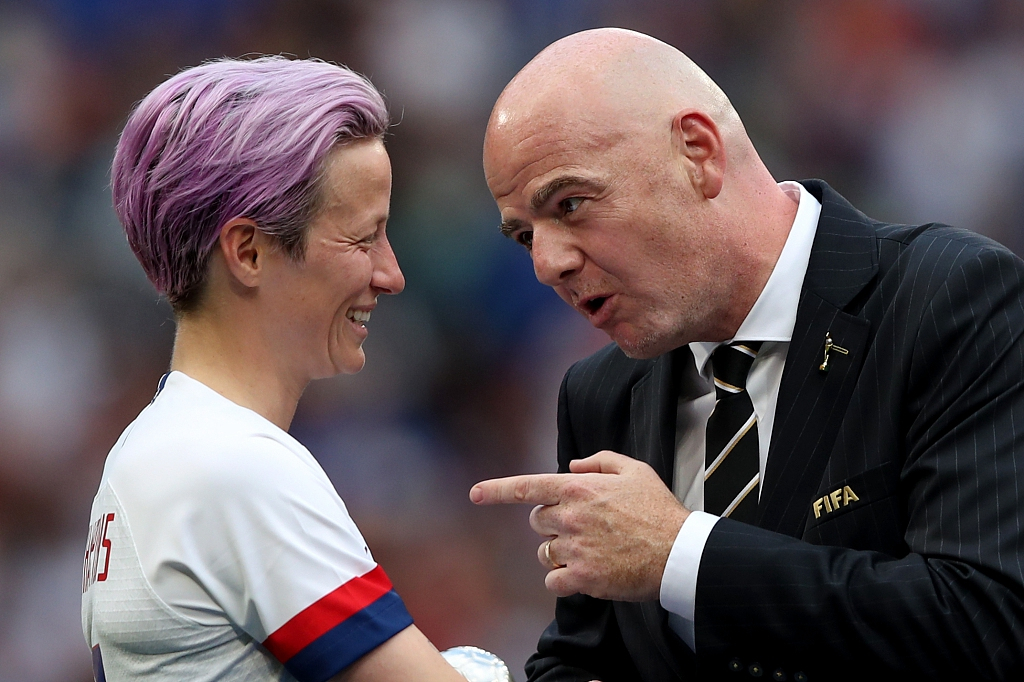
After U.S. midfielder Rose Lavelle thundered in the World Cup's 144th goal, the 57,900-strong crowd in Lyon got to its feet and started a chant, shouting two simple words that sum up what the tournament champions achieved in France this year.
"Equal pay, equal pay, equal pay." These were the final words, sealing the end of a month-long tournament that has captured the imaginations of millions of fans following the team in France and around the world.
Back home in the U.S., Billie Jean King, Stephen Curry, Ellen DeGeneres and even President Donald Trump all took to Twitter to congratulate the team on their victory, with Trump saying "America is proud of you all!"

Image via Twitter
But for star players like Megan Rapinoe, now elevated to iconic status and arguably the global face of women's football, the U.S. victory in this tournament has to lead to more than congratulatory messages.
"I think everyone is ready for this conversation to move to the next step," Rapinoe told a post-match press conference.
The 34-year-old, who opened the scoring in the 2-0 victory over the Netherlands, said, "I think we're done with 'are we worth it, should we have equal pay, is the markets the same, yadda, yadda.' Fans are done with that, players are done with that and, in a lot of ways, I think sponsors and everyone's done with that.
"Let's get to the next point. How do we support women's federations and women's programs around the world?"

Megan Rapinoe during Sunday's final between the U.S. and the Netherlands, Lyon, France. /VCG Photo
For Rapinoe, and for the crowd in the Stade de Lyon, the answer to that question lies with FIFA.
While the footballers in this year's tournament let their feet do the talking, the crowd clearly made their feelings known by booing FIFA President Gianni Infantino.
Days before the final, Infantino proposed expanding future Women's World Cup tournaments, as well as doubling the prize money on offer.
Doubling the total prize money on offer would mean paying out 80 million U.S. dollars at the 2023 tournament – still a fifth of the amount paid to the male footballers at Russia 2018.
This year's World Cup attracted an estimated global audience in excess of one billion, and Infantino himself acknowledged FIFA doesn't lack cash, saying "we don't need all this money in the Swiss banks," referring to the organization's reserves of more than 2.7 billion U.S. dollars.

Rapinoe with FIFA President Gianni Infantino after the final. /VCG Photo
The pay gap that exists between male and female footballers has already been widely reported, but Sunday's final was the perfect platform for the U.S. players to get their message across, amid an ongoing lawsuit that the team launched in March.
Read more: Equality and the Women's World Cup
Mind the pay gap: Is FIFA spending enough on women's football?
Women's World Cup: The case for female coaches
Women's World Cup 2019 aims to boost women's football globally
Twenty-eight U.S. players filed the discrimination case against the U.S. Soccer Federation (USSF) on International Women's Day (March 8), saying that they receive unequal pay compared with the U.S. men's team.
A report by The Guardian found that the U.S. men's team would receive almost 330,000 U.S. dollars each from the USSF just for reaching the knockout round of a World Cup.
For the women's team, winning the tournament brings a USSF bonus of around 200,000 U.S. dollars each.
The federation said there was no discrimination, with the pay disparity put down to "legitimate business reasons."
However, a report by the Wall Street Journal found that over the past three years, the U.S. women's team has actually brought in more revenue for the federation than their male counterparts, who failed to even qualify for Russia 2018.

Copyright © 2018 CGTN. Beijing ICP prepared NO.16065310-3
Copyright © 2018 CGTN. Beijing ICP prepared NO.16065310-3